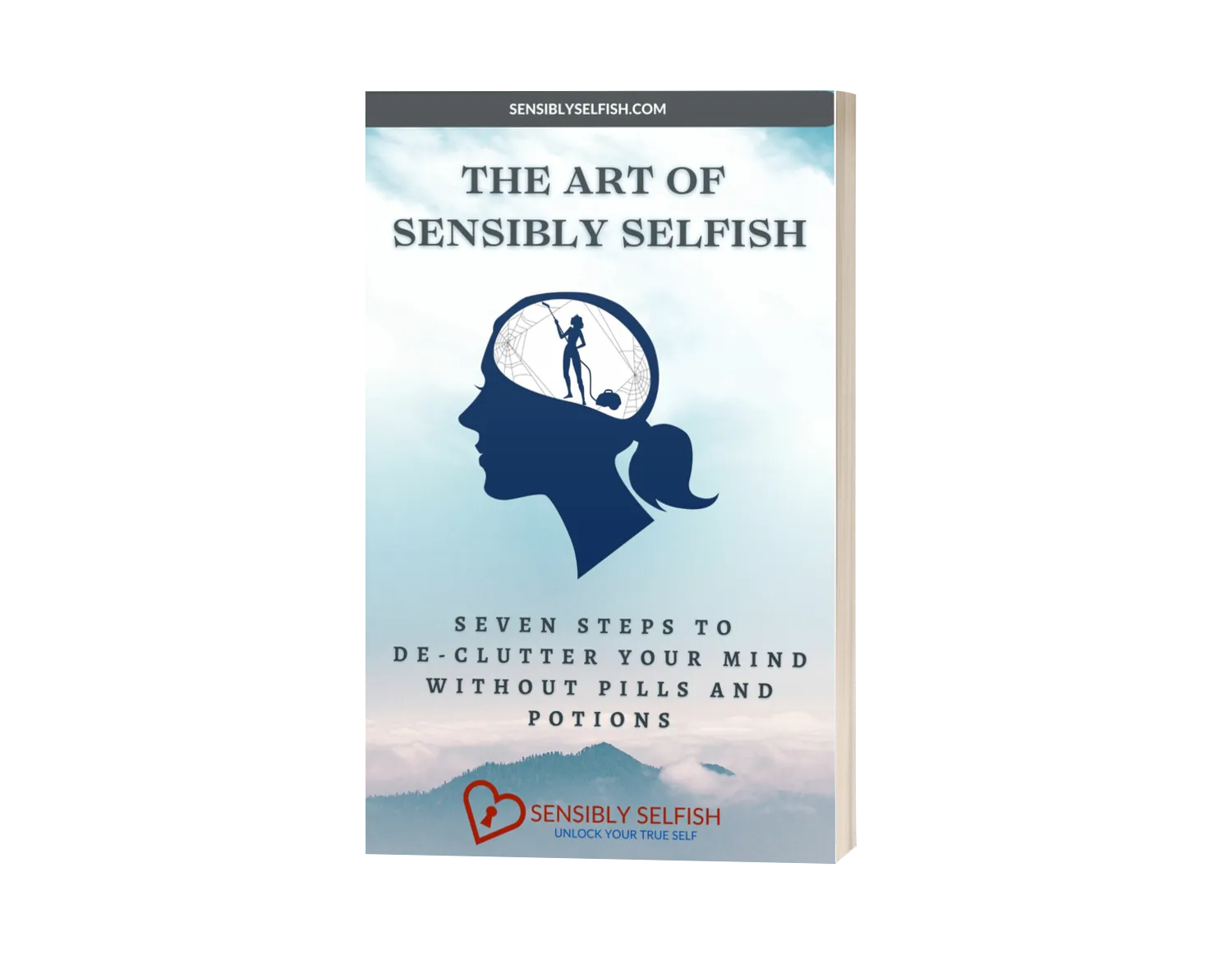Autophagy and Cellular Self-Cleansing
Your Body's Innate Purifying Power

While Ketosis and Intermittent Fasting (IF) are commonly known in the realm of dieting, the term "autophagy" (aw-tof-agee) often goes unnoticed. Perhaps this is because autophagy is a natural bodily process, devoid of the profit-driven motives that dominate the billion-dollar diet industry.
The diet industry stands as a colossal force, boasting a staggering worth exceeding 71 billion dollars and showing no signs of slowing down. Ponder the possibilities that would unfold if the knowledge of Autophagy were widespread among the masses.
The financial resources amassed through the redirection of diet-focused expenditures could be channeled towards addressing urgent global needs, such as providing universal access to clean water for every individual on the planet. The thought alone is enough to keep you reading!
Yet, before you read on it is essential to acknowledge that each individual's response to fasting and the onset of autophagy varies. Autophagy is usually typically triggered around 16 hours of fasting yet your metabolic rate will influence the timeframe. Therefore, fasting is best approached as a personalized journey, ensuring a delicate balance between achieving autophagy and avoiding starvation.

What is Autophagy?
Autophagy, an age-old phenomenon, gained significant recognition in 2016 when scientist Yoshinori Ohsumi was awarded the Nobel Prize for his groundbreaking work. By studying fungi, Ohsumi elucidated the intricate workings of autophagy at a cellular level.
In simpler terms, autophagy occurs when the body enters a fasting state long enough to compel it to seek energy from within. During this process, the body initiates a comprehensive internal cleansing, discarding unwanted, obsolete, and aged cellular components. It can be likened to an extensive spring cleaning at a microscopic level, resulting in remarkable benefits.
Autophagy is considered the body's inherent mechanism for combatting inflammation, cardiovascular disease, certain cancers, and even Alzheimer's.
As Autophagy efficiently dismantles and clears away the body's unwanted cells, it follows that it may also contribute to the gradual consumption of excess flabby skin, a fascinating concept for individuals seeking to enhance their physical appearance in a natural way (More research is needed to confirm this).

The Benefits of Fasting to Achieve Autophagy
1. Enhanced Gut Health - Experience reduced bloating and improved digestion.
2. Stabilized Blood Sugar Levels - Say goodbye to cravings and enjoy more stable energy throughout the day.
3. Improved Cholesterol Profile - Monitor your progress with a blood test to see the positive impact on your cholesterol levels.
4. Restful Sleep - Enjoy better sleep quality and wake up feeling refreshed.
5. Compatible with Coffee - You can still indulge in your beloved cup of coffee while fasting. (As long as it is black without sugar).
6. Enhanced Hair and Nail Health - Notice improvements in the strength and appearance of your hair and nails.
7. Mental Clarity - Experience reduced brain fog and studies indicate potential benefits in delaying the onset of Alzheimer's disease.
8. Waistline Transformation - Shed dangerous visceral fat while preserving muscle mass, leading to better-fitting clothes.
9. Alleviated Pain and Inflammation - Experience relief from chronic pain as fasting helps combat inflammation in the body.
10. Increased Energy and Well-being - Reap the rewards of improved energy levels, contributing to a happier you and better relationships with family and friends.
11. Hope for Longevity - Embrace a sense of hope for a long and healthy lifespan as you prioritize your well-being through fasting.

Kim’s Story
Let's dive into a case study centred around Kimberley, an individual who faced persistent weight issues and chronic inflammation despite maintaining a wholesome diet and engaging in regular exercise.
Kimberley's weight struggles were a source of frustration, particularly when comparing herself to her thin husband. Although they shared the same meals and she prioritized exercise, getting sufficient rest, and nurturing a positive mindset, her midlife midriff stubbornly persisted. Medical professionals continually bombarded her with recommendations like "cutting out fat," "eliminating sugar," "going keto," or simply "exercising more and eating less." Unfortunately, none of these approaches yielded the desired results, leading Kimberley to experience feelings of self-loathing and despair.
The Breakthrough
It was during a transformative shift away from the conventional concept of dieting that Kimberley experienced a breakthrough. Instead, she redirected her focus towards understanding her body holistically, seeking a more sustainable and fulfilling approach. This shift led her to discover the benefits of intermittent fasting, adopting a fasting lifestyle where she fasted for 19 hours and had a 5-hour eating window most days.
Kimberley found that delaying breakfast and enjoying a late breakfast and lunch while skipping an evening meal suited her body best. At the same time, she knew it was important to keep her body guessing and not eat the same way each day. Some days she took the day off, other days she extended her non-eating window.
The Lessons
For Kimberley, fasting became a deliberate lifestyle choice. She recognized the value of surprising her body with intermittent fasting, introducing variations and adaptations to maintain its vibrancy and robustness. Consequently, when faced with dinner invitations, Kimberley embraced the social aspect and made sure to attend.
Since Kimberley embarked on her fasting journey and shed 12 kilograms, she has experienced an array of positive changes. Her hair radiates with a newfound shine, her nails have grown stronger, and her sleep patterns have shifted to a deeper and more restorative level. Most notably, the constant bodily aches and inflammation that had plagued Kimberley for years have significantly diminished and the weight has remained off.

It’s Not What You Eat BUT When You Eat!
The concept that the importance lies not in what you eat but when you eat has gained traction recently, and sparked intriguing discussions in the realm of nutrition and overall well-being. While the quality of food remains significant, emerging research suggests that the timing of meals and the implementation of intermittent fasting can have a profound impact on our health and longevity.
Traditionally, the focus of dietary recommendations has centered around macronutrient composition and calorie intake. However, recent studies have shed light on the influence of our body's internal clock, known as the circadian rhythm, on various physiological processes. Our bodies are intricately linked to natural light-dark cycles, and they possess a finely tuned internal clock that regulates metabolism, hormone production, and cellular repair. Aligning our eating patterns with this natural rhythm, such as implementing time-restricted feeding or intermittent fasting, may optimize our body's functioning. Women are also affected by the monthly moon cycles which are covered in the sections below.
Intermittent fasting, cycling between periods of eating and fasting, offers a promising avenue to harness the power of meal timing. By extending the overnight fasting period or incorporating longer fasting windows into our routine, we give our bodies a chance to engage in autophagy and also promote metabolic flexibility. Studies have indicated that intermittent fasting can enhance insulin sensitivity, support weight management, reduce inflammation, and even improve cognitive function.
It is essential to note that while the concept of "when you eat" holds significance, it does not negate the importance of a balanced and nutritious diet. The quality of food remains crucial in providing the necessary nutrients, vitamins, and minerals for optimal health. However, by paying attention to meal timing and incorporating periods of fasting, we can potentially unlock additional benefits that go beyond the composition of our diet. As researchers continue to delve into the complex interplay between our biological clock, meal timing, and health outcomes, exploring the concept of "when you eat" may offer valuable insights into designing personalized and sustainable approaches to nourishing our bodies.

Heeding The Hazda’s
The Hazda tribe, residing in Tanzania, presents a fascinating example of a population that naturally follows intermittent fasting due to its nomadic lifestyle and food availability. With their traditional hunter-gatherer way of life, the Hazda rely on foraging for their sustenance, and their eating patterns naturally align with periods of food availability.
The Hazda's food sources vary depending on the season and the region they inhabit. They primarily consume a diverse range of plant foods, including tubers, fruits, nuts, and wild honey. Additionally, they engage in hunting small game, which provides them with a source of protein.
Interestingly, the Hazda men tend to consume a higher proportion of protein-rich foods compared to women. When the men hunt they need energy and if the protein catch is small it is eaten on-site and not brought back for the women. Women therefore only feast on protein when the kill is large enough.
The nomadic nature of the Hazda lifestyle, coupled with the unpredictable availability of food resources, leads to a pattern of intermittent fasting. They may experience periods of feast and scarcity as they travel through different regions in search of food. During times of abundance, they consume larger quantities of food to sustain themselves, while during lean periods, they rely on their body's stored energy and adapt to a fasting state.
This natural intermittent fasting pattern observed among the Hazda may have profound implications for their health and well-being. Research has shown that intermittent fasting can stimulate various physiological responses, such as enhanced autophagy, improved insulin sensitivity, and increased metabolic flexibility. These adaptations may contribute to the Hazda's ability to thrive in their environment by optimizing their energy utilization and promoting overall health.
By examining the Hazda tribe's way of life, we can gain valuable insights into the potential benefits of fasting and feasting - the adaptability of the human body to different eating patterns. While modern lifestyles and food abundance have shifted many populations away from natural fasting cycles, studying communities like the Hazda offers us a glimpse into our evolutionary heritage and encourages further exploration of intermittent fasting as a potential strategy for optimizing health in contemporary society.

Fasting and Peri-Menopause: Optimizing Well-being
Intermittent fasting and its potential impact on women's monthly cycles is an area of ongoing research and discussion. While there is no one-size-fits-all answer, emerging evidence suggests that the effects of IF on women's menstrual cycles may vary depending on the specific phase of the cycle and individual factors.
As Dr Mindy Pelz says "Unlike men who only have a 24-hour circadian rhythm, women have an additional 28-32 day monthly hormonal cycle that affects how she should eat, fast, sleep, exercise and live."
The menstrual cycle consists of distinct phases, including the follicular phase, ovulation, and the luteal phase. Each phase is characterized by unique hormonal fluctuations and physiological changes. Some studies suggest that the metabolic response to IF may differ across these menstrual phases.
During the follicular phase, which occurs before ovulation, estrogen levels rise, and metabolism tends to be more insulin sensitive. This phase may be an opportune time to engage in IF, as increased insulin sensitivity can enhance the body's ability to utilize stored fat for energy. Some women may find that IF during the follicular phase aligns well with their energy levels and hunger cues.
Conversely, during the luteal phase, which follows ovulation, progesterone levels increase, and some women may experience changes in hunger, cravings, and mood. This phase may coincide with increased appetite and a preference for higher-calorie foods. In such cases, strict IF protocols may not be as well-tolerated or effective. However, a more flexible approach to IF, such as time-restricted eating or modified fasting windows, may still be beneficial.
It is important to note that individual variations exist, and some women may not experience significant changes in their menstrual cycles or hunger patterns when practicing IF. Factors such as overall health, stress levels, body composition, and personal preferences can influence the response to IF throughout the menstrual cycle.
When you prioritize overall nutritional adequacy and maintain a balanced approach to eating avoiding fad diets you allow your body space to do what it knows best - to look after you. Women who choose to incorporate IF into their routine and ensure they are meeting their nutrient needs and not compromising their overall well-being are the healthiest. Consuming a variety of nutrient-dense foods and considering the potential impact of IF on specific nutrient requirements, such as iron and calcium, essential for women's health is the key.

Fasting and Menopause: Enhancing Vitality
Menopause is a significant transitional phase in a woman's life, marked by hormonal changes and various physiological adjustments. Naturally, this raises the question of whether fasting is suitable during menopause and how it may impact women's health and well-being during this stage.
It is important to recognize that every woman's experience of menopause is unique, and individual considerations should be taken into account when deciding whether to engage in fasting. Menopause brings about hormonal fluctuations, including a decline in estrogen levels, which can lead to changes in metabolism, body composition, and overall health. Some women may experience symptoms such as hot flashes, mood swings, and disrupted sleep patterns, making it crucial to approach any dietary changes, including fasting, with careful consideration.
Research on the effects of intermittent fasting specifically during menopause is limited. However, there is evidence to suggest that fasting may offer certain benefits that could be relevant during this phase of life. For example, intermittent fasting has been associated with improvements in insulin sensitivity, weight management, and cardiovascular health, which are areas of concern for many menopausal women. Fasting may also potentially help mitigate age-related metabolic changes and support healthy aging.
Menopausal women often have unique nutritional needs and considerations, such as maintaining bone health, managing weight fluctuations, and supporting hormone balance. It is essential to ensure that adequate nutrient intake, including calcium, vitamin D, B12 and phytoestrogens, is maintained to support overall health during this phase.
Moreover, since menopause can be accompanied by specific symptoms such as hot flashes and sleep disturbances, it may be wise to consider the potential impact of fasting on these symptoms. Some women may find that certain forms of fasting, such as time-restricted eating or shorter fasting windows, are more suitable for their individual needs and can be better tolerated during menopause.

Ten Tips to Promote Autophagy
The natural cellular cleansing process in the body is there for us to take advantage of. Now that you have read to this point, here are some ways to promote the process in your own body.
1. Incorporate intermittent fasting
Consider implementing intermittent fasting into your routine, such as time-restricted eating or alternate-day fasting. Experiment with different fasting schedules to find what works best for you and consult with a healthcare professional if needed.
2. Aim for a minimum fasting window
To stimulate autophagy, try to fast for at least 16 hours. This duration allows your body to deplete its glycogen stores and begin relying on stored fats for energy.
3. Stay hydrated
Drink plenty of water throughout the day to support cellular processes, including autophagy. Hydration helps facilitate detoxification and enhances overall cellular function.
4. Focus on nutrient-dense foods
Opt for a diet rich in whole, unprocessed foods, including fruits, vegetables, lean proteins, healthy fats, and complex carbohydrates. Prioritize nutrient-dense choices to support optimal cellular health.
5. Reduce refined sugars and processed foods
Minimize your consumption of highly processed foods and added sugars. These can disrupt metabolic processes and impede autophagy.
6. Exercise regularly
Engage in regular physical activity to promote autophagy. Both aerobic exercise and strength training have been shown to stimulate this cellular process. Aim for a combination of cardiovascular exercises and resistance training.
7. Prioritize quality sleep
Establish a consistent sleep routine and aim for 7-9 hours of quality sleep each night. Adequate sleep supports overall cellular health, including autophagy.
8. Manage stress levels
Chronic stress can negatively impact autophagy. Incorporate stress management techniques such as meditation, deep breathing exercises, yoga, or engaging in activities you enjoy to promote relaxation and well-being.
9. Consume natural compounds that support autophagy
Certain compounds, such as resveratrol (found in grapes and red wine), green tea extract, and curcumin (from turmeric), have been associated with promoting autophagy. Consider incorporating these into your diet or discussing supplementation options with a healthcare professional.
10. Be consistent and patient
Autophagy is a natural process that occurs over time. Consistency is key, so aim to adopt healthy habits and give your body time to adjust. Results may not be immediate, but with patience and commitment, you can support autophagy and reap the benefits for overall health and well-being.
BONUS TIP - and the most important one, always listen to your own body, do your own due diligence and consult with a healthcare professional or registered dietitian before making significant changes to your diet or lifestyle, especially if you have any underlying health conditions or concerns.

Additional Points to Consider
For women over 45 who are considering intermittent fasting and its relationship to autophagy, here are some additional important points to know:
1. Hormonal Changes
As women age, hormonal fluctuations become more pronounced, particularly during perimenopause and menopause. These hormonal changes can influence metabolic processes, including autophagy. It's essential to listen to your body and adjust your fasting approach accordingly. If you experience any adverse effects or disruptions in your menstrual cycle, consider modifying your fasting protocol or consulting with a healthcare professional.
2. Individual Differences
Every woman is unique, and how your body responds to IF and autophagy may differ from others. Pay attention to your energy levels, hunger cues, and overall well-being. Experiment with different fasting windows and schedules to find what works best for you. Be open to adjusting your approach based on your body's signals and consult with a healthcare professional if needed.
3. Nutrient Needs
At this stage of life, nutrient requirements may change. It's crucial to prioritize a nutrient-dense diet that provides essential vitamins, minerals, and antioxidants. Consider incorporating a variety of whole foods, including fruits, vegetables, lean proteins, healthy fats, and whole grains, to support overall health and support the body's cellular processes.
4. Bone Health
Women over 45 are at an increased risk of developing osteoporosis. While intermittent fasting itself is not directly linked to bone health, it's important to ensure you're getting adequate calcium and vitamin D, which are crucial for maintaining bone health. Consider incorporating foods rich in these nutrients or discussing supplementation options with a healthcare professional.
5. Muscle Preservation
Age-related muscle loss, known as sarcopenia, becomes more prevalent in women over 45. Resistance training exercises, combined with a balanced diet, can help preserve muscle mass during intermittent fasting. Including strength training exercises in your fitness routine can support healthy ageing and help maintain muscle strength and function.
6. Overall Lifestyle Factors
Intermittent fasting is just one component of a healthy lifestyle. It's essential to consider other factors such as regular exercise, stress management, sleep quality, and maintaining social connections. Taking a holistic approach to your well-being will enhance the benefits of intermittent fasting and support overall health and vitality.
7. Monitoring your body's response
Regularly assess how your body is responding to intermittent fasting. Pay attention to your energy levels, mood, sleep quality, and any changes in your menstrual cycle or other bodily functions. If you notice any concerning symptoms or have specific health concerns, consult with a healthcare professional for personalized guidance.

You Know Best
The concept of intermittent fasting has been known and practiced for centuries, with its roots in various cultures and religions. Fasting has been a part of religious rituals, spiritual practices, and healing traditions throughout history. It has been observed in different forms, including periodic fasting, time-restricted feeding, and alternate-day fasting, among others.
During any transformative stage of life, whether it be your journey through, peri-menopause, menopause or into the third stage of life, the decision to engage in intermittent fasting should be based on your individual's overall health, lifestyle, and personal preferences.
The scientific understanding and interest in intermittent fasting continue to evolve as researchers delve deeper into its mechanisms and explore its potential applications in different populations and health conditions. The effects of intermittent fasting on women's monthly cycles is a relatively new area of study. It is understood that IF effects can vary depending on the specific phase of the cycle and individual factors. Some women may find that certain phases of the menstrual cycle align well with IF protocols, while others may benefit from a more flexible approach.
Each person's health journey is unique, and what works for one individual may not work the same way for another. It's essential to prioritize your well-being and make informed decisions based on your body's specific needs and feedback. If you have any underlying health conditions or concerns, consult with a healthcare professional or registered dietitian who can provide personalized guidance tailored to your circumstances.
Fast, Feast, Repeat.
Finally, Autophagy is a FREE method you can use for health. Think of it as a healing state, like good sleep, and exercise. When you fast you are adding another tool to your holistic wellbeing and taking responsibility for YOU.
As Gin Stephens states: "While weight loss is a side effect of intermittent fasting, the real transformation happens when you embrace the freedom, health, and confidence that come from making peace with food and finding a sustainable way of eating for life." Fast. Feast. Repeat. If you would like to reach out use the button below.









